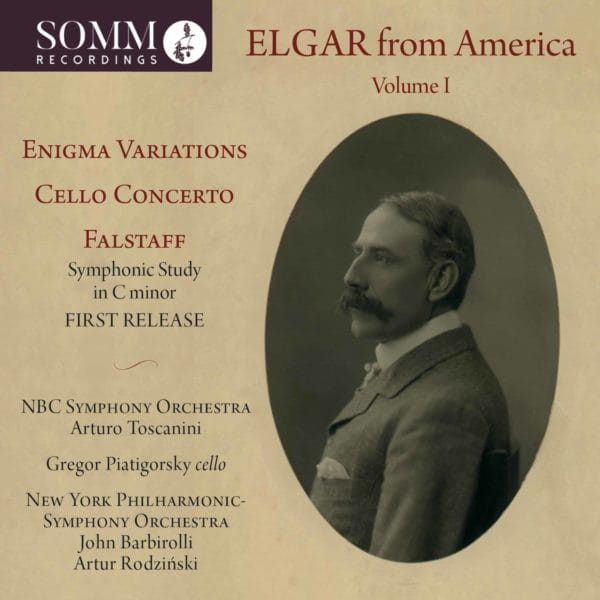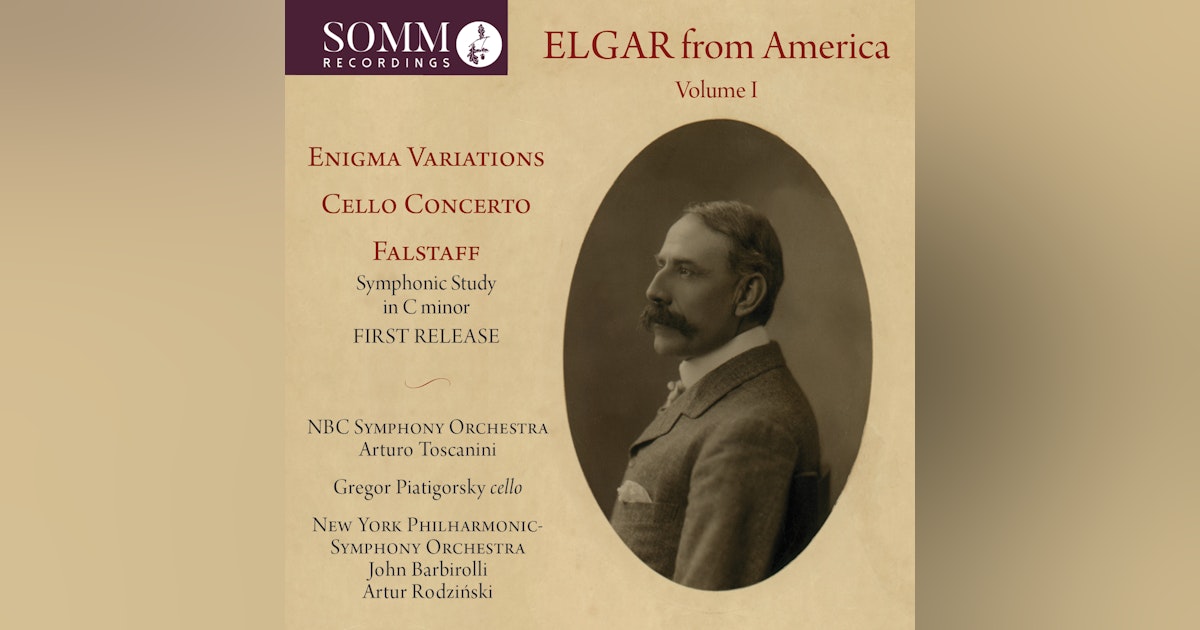Elgar from America, Volume 1 on SOMM
A valuable document ... Elgarians will want this

This might be Classical Explorer's first encounter with Arturo Toscanini, the great enigma. For years, I railed against him, both of my feet firmly in the Furtwängler camp. Cue a sheaf of reviews for the American magazine Fanfare. It took a while but I came to appreciate the other idea of the coin: leanness and excitement, basically, coupled with the most astonishing orchestral discipline (his tantrums were legendary).
The leanness of the Enigma theme is typical of this conductor, as is the relentless razor attack of Variations IV (W.M.B.) and XI (G.R.S.) while Variation VII (Troyte) is fierce and virtuoso. Whether the very next vacation feels just slapped down next to it as opposed to in contrast (and it's mightily fast for the music, too) is up for debate. I'm not are Toscanini gets the idea of nobilment, either (required, surely,, in teh contrasting moments of the Finale (E.D.U.), Vaiation XIV.
Lani Spahr for SOMM has done.sterling job in reducing harshness from the upper frequencies (particularly high violins) while retaining clarity, and achieving a firm bass, so I do recommend this transfer. Other Toscanini Enigmas are out here. Here's one from 1951, also NBC:
... and here's the early 1935 account with the BBC Symphony Orchestra:
Is there something a bit bandmasterish about this? You bet there is. It is a highly individual take; Toscanini fans will love it, but for a similar yet more convincing approach to Elgar, it's to Rodzinski's Falstaff we must go. But first, there's a wonderful performance of the Cello Concerto to consider ...
It is fair to say John Barbirolli was au fait with Elgar's music, and here is the fascinating combination of Barbirolli and Gregor Piaigorsky (who never recorded the piece commercially). It was Barbirolli and du Pré, of course, who furnished one of the classic recordings of the piece (fairly recently reissued by Warner in one of their boxes). Piatigorsky's reading is a fine one, lean, sinewy and muscular:
Listen also to the gruff opening of the second part: this is powerful, and so good to have such detail both from Piatigorsky and the NYPSO (New York Philharmonic Symphony Orchestra, as it was then known). Then there's Piatigorsky's astonishing virtuosity:
The expressiveness of the Adagio is, to my ears, perfect, an ideal complement to the du Pré:
The finale is an ideal blend of fire and flow. Piatigosky is astonishingly expressive, and his tone is well conveyed in the recording.
We have featured Falstaff before: Barenboim with the Staatskapelle Berlin on Decca. It is good to have a complementary historical recording, albeit one that is slightly cut. There is a briskness here - so in one sense, it links to Toscanini's Elgar - but here everything is so cogent. Rodzinski is a born storyteller, his attention to detail just as meticulous as Toscanini's, but with added flair. Listen to “Eastcheap - Gadshill - The Boar's Had, revelry and sleep”:
Rodzinski chose this as part of the programme for this inaugural performance as Permanent Conductor of the NYPSO; it was not performed again by this orchestra until 1968 - and only once since the (!) in May 1983.
The cuts though make this performance some 10 minutes shorter than usual. Lani Spahr conjectures as to why in his notes as well as itemising the cuts exactly if you have a score in hand. So there is no direct comparison with Barenboim in one sense, anyway. But this IS to be experienced. Rodzinski was an amazing conductor.
Be aware that for some reason at Amazon this is listed under Shostakovich! The correct product is here; the Warner box of é Pre is available here (19% off at this link).


